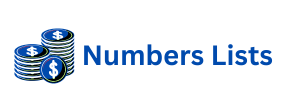Mastering Content Writing: The Role of Keywords and Backlinks
Effective content writing is a cornerstone of digital marketing. It goes beyond simply putting words on a page. Truly impactful content merges creative expression with strategic SEO principles. Understanding this blend is crucial for online visibility. Every piece of content aims to inform, engage, and convert. It also needs to be discoverable by search engines. This dual objective shapes modern content strategies.
At the heart of discoverability lies meticulous keyword research. Keywords are the terms people use to find information online. They serve as the compass guiding your content creation efforts. Choosing the right keywords ensures your content answers user queries directly. This improves your chances of ranking higher. Moreover, keywords help define your target audience’s needs. They reveal what problems your potential customers want solved. Incorporating these terms naturally is key.
Beyond keywords, backlinks play a pivotal role. Backlinks are essentially votes of confidence from other websites. They tell search engines that your content is valuable and trustworthy. These links are split into two main categories. Both internal and external backlinks contribute significantly to SEO performance. They enhance authority and improve navigation. A robust backlink profile is a strong indicator of site relevance. It impacts how search engines perceive your overall online presence.
Understanding External Backlinks for Authority Building
External backlinks, also known as inbound links, come from other domains. When another website links to your content, it signals value. Search engines view these links as endorsements. They are a critical factor in determining your site’s authority. High-quality external backlinks can significantly boost your search rankings. They establish your website as a credible source of information. The more reputable the linking site, the greater the benefit.
Acquiring these valuable links requires a strategic approach. It is not about quantity, but rather about quality. Links from authoritative, relevant websites hold more weight. Building these relationships takes time and effort. Guest posting on industry blogs is one common method. Creating truly exceptional content is another. People are more likely to link to content that offers unique insights. They link to content that solves a problem.
Therefore, focusing on generating excellent content writing topics is paramount. Content that is well-researched and highly informative attracts organic links. It serves as a valuable resource for others. This natural accumulation of links is highly regarded by search algorithms. It strengthens your domain authority over time. This makes your site more competitive in search results.
The Strategic Importance of Internal Backlinks
While external links bring authority from outside, internal backlinks distribute it within. Internal links connect different pages on your own website. They help search engine crawlers navigate and understand your site’s structure. These links pass authority from stronger pages to weaker ones. This process, known as link equity distribution, is vital for SEO. It ensures that all relevant pages receive some ranking power.
Beyond SEO, internal linking greatly enhances user experience. It guides visitors through your site’s content seamlessly. Users can easily discover related articles and services. This keeps them engaged for longer periods. It also reduces bounce rates. A well-planned internal linking structure highlights important content. It ensures that no valuable page remains an island. Every page should be accessible and discoverable.
Effective internal linking also reinforces topical relevance. By linking related articles, you signal a clear semantic connection. This helps search engines understand your expertise in specific areas. It strengthens your site’s overall topical authority. A good strategy involves using descriptive anchor text. This text should accurately reflect the content of the linked page. This clarity benefits both users and search engines alike.
Weaving Keywords into Your Content Strategy
The strategic use of keywords extends far beyond initial research. It involves thoughtfully integrating terms throughout your content. This helps search engines understand your content’s subject matter deeply. Semantic SEO emphasizes natural language processing. This means using not just exact keywords, but also related phrases. Think about synonyms and latent semantic indexing (LSI) keywords. These variations enrich your content’s context.
Avoiding keyword stuffing is absolutely critical. Overusing keywords can harm your search rankings. It creates a poor reading experience for your audience. Instead, focus on natural language and readability. Your primary goal is to provide value to the reader. Search engines are sophisticated enough to understand context. They can discern relevance without excessive repetition. Focus on comprehensive coverage of your chosen topic.
Think about the user’s search intent when using keywords. Are they looking for information, a product, or a solution? Align your content and keywords with this intent. This ensures your content truly meets user needs. It also positions your site as a go-to resource. A balanced approach ensures both SEO effectiveness and reader satisfaction. This dual focus is key for long-term success.
Synergizing External Backlinks, Internal Links, and Keywords for SEO Success
True SEO success comes from integrating all these elements. Content writing is not just about words. It is about strategic words, supported by powerful links. External backlinks build credibility and domain authority. Internal links distribute that authority and enhance user flow. Keywords ensure your content is discoverable and relevant. Each component strengthens the others, creating a powerful ecosystem.
A holistic SEO strategy considers all these moving parts. It builds a robust online presence. This integrated approach ensures sustainable growth. Focus on creating high-quality, valuable content consistently. Then, strategically build both your internal and external link profiles. This comprehensive strategy will drive significant organic traffic. It establishes your brand as an authority in your niche. Your efforts will translate into lasting online visibility.
